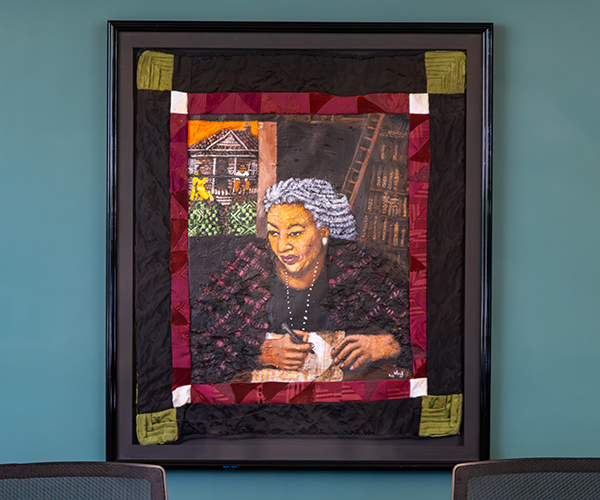In a way, Kit Willihnganz was researching romance for years.
In 1999, when a college professor recommended (perhaps with snark) she think about writing for Harlequin, a publishing company known for romance and women’s fiction, the Louisville native approached the idea methodically. She’d snuck her mother’s romance novels as a teen, though Willihnganz found the straight, alpha male tropes lacking.
After her professor’s comment, Willihnganz read academic works on misogynistic messaging in mainstream romance (heads up: it’s rampant!), and finally checked out the most popular romance novel of all time: 1972’s The Flame and the Flower.
“It begins with the hero raping the heroine!” says Willihnganz, a young adult novelist who’s published books with St. Martin’s Press. “It’s just a terrible book.”
Willihnganz began writing romance about more diverse relationships in her free time, thinking no one would publish it. Finally, at a 2017 writing workshop, she turned to her friend and asked: “Why can’t I find bisexual, polyamorous romance about people who respect each other?”
So, Belonging Books was born. Launched this September, the publishing imprint is dedicated to promoting “inclusive romance,” stories populated with traditionally marginalized groups, including people of color, those with disabilities, members of the LGBTQ community and more. Currently accepting submissions nationwide, the imprint hopes to publish 12 new titles by June 2020.
“The world’s ready for it,” says Willihnganz. “The generation that’s coming up isn’t going to be happy with The Flame and the Flower. They want something smarter, more emotionally intelligent.”
At press time, the first three confirmed titles are all local, including a Joan of Arc alternate history, a college spring break tale and a lesbian romance that flips the script on the mysterious billionaire trope.
Willihnganz started the company with L.S. Quinn, founder of literacy nonprofit Reading Room CLE, literary talent scout Anna Risher and Robert Gatewood, the owner of Gatewood Work/Share. The group has already drawn on their resources to host focus groups and co-sponsored events on social media marketing. They’re planning diverse stock photo shoots, employing local models to pose for their romances’ covers.
As for the submissions, Belonging Books is a feminist publishing house. For Willihnganz, that’s meant turning down well-written stories that center around toxic relationships or traditional gender roles.
“I’m looking for things that are slightly aspirational,” she says, “but can provide examples of how people can interact in a way that’s respectful, loving and still interesting.”
These gestures stem from Belonging Books’ respect for the genre. Willihnganz was troubled by the disdain romance received, largely she thinks, because it’s a “women’s genre.” At its core, she sees romance as the purest investigation of human connections, even if the genre needs to better reflect a diverse world.
“Romance is an examination of how we interact with other people. It’s a study of relationships,” she says. “It’s kind of the same reason we watch Dr. Phil. We want to know how other people work.”




